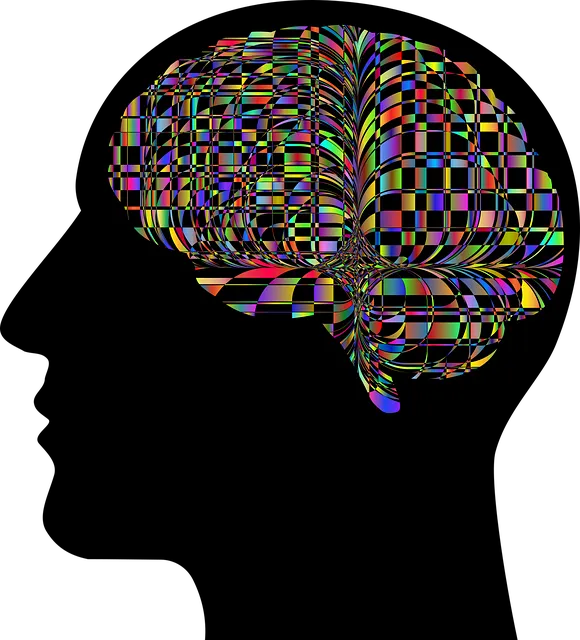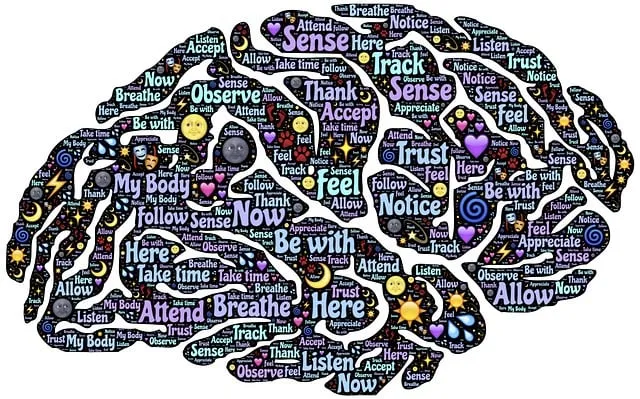The Wheat Ridge Kaiser Permanente Mental Health Access Center tackles complex mental illness diagnosis challenges through innovative initiatives. They enhance communication with workshops, integrate conflict resolution techniques in training, and promote proactive coping strategies via Mind Over Matter principles. Offering diverse services like personalized Mental Wellness Coaching Programs, Stress Reduction Methods, and a Mental Wellness Podcast Series, the center revolutionizes diagnosis accuracy. Comprehensive training equips professionals to recognize subtle symptoms and integrate diverse therapeutic approaches. A patient-centered approach focusing on self-awareness, trauma support, and stress reduction empowers individuals for improved long-term recovery outcomes.
Mental illness diagnosis accuracy is a critical aspect of patient care, yet it remains challenging due to complex symptoms and diverse presentations. This article explores strategies aimed at enhancing diagnostic precision, focusing on the role of specialized centers like the Wheat Ridge Kaiser Permanente Mental Health Access Center. We delve into innovative techniques, training programs for healthcare professionals, and patient-centric approaches that contribute to improved diagnosis and care quality in mental health management.
- Understanding the Challenges of Mental Illness Diagnosis Accuracy
- The Role of Specialized Centers like Wheat Ridge Kaiser Permanente Mental Health Access Center
- Innovative Approaches to Enhance Diagnostic Accuracy
- Training and Education for Healthcare Professionals
- Patient-Centered Strategies for Improving Diagnosis and Care Quality
Understanding the Challenges of Mental Illness Diagnosis Accuracy

Diagnosing mental illness accurately can be a complex and challenging task due to various factors. The intricate nature of human behavior and emotions often leads to misdiagnosis or delayed identification of mental health conditions. This is especially true in diverse communities where cultural differences, stigma, and limited access to resources may hinder open discussions about mental well-being. For instance, the Wheat Ridge Kaiser Permanente Mental Health Access Center has recognized these hurdles and implemented initiatives to enhance diagnosis accuracy.
One such effort involves educating both patients and healthcare professionals through workshops focused on improving communication and understanding of complex symptoms. Conflict Resolution Techniques are being incorporated into training programs to help professionals navigate sensitive conversations about mental health. Additionally, integrating Mind Over Matter Principles in therapy encourages individuals to develop coping strategies, fostering a proactive approach to managing their mental well-being. These efforts aim to improve risk management planning for mental health professionals, ultimately leading to more precise and timely diagnoses.
The Role of Specialized Centers like Wheat Ridge Kaiser Permanente Mental Health Access Center

Specialized centers play a pivotal role in enhancing mental health diagnosis accuracy and accessibility. One such notable example is the Wheat Ridge Kaiser Permanente Mental Health Access Center, dedicated to improving mental wellness within communities it serves. These centers often provide a comprehensive range of services tailored to diverse needs, from individual therapy sessions to group support programs. By offering specialized care, they ensure that patients receive accurate diagnoses and effective treatments for conditions like anxiety and stress-related disorders, which are prevalent in today’s fast-paced society.
The Wheat Ridge Kaiser Permanente center stands out in its commitment to integrating innovative practices, including burnout prevention strategies specifically designed for healthcare providers. Given the unique challenges faced by those in the medical field, these centers offer valuable resources for managing stress and maintaining work-life balance, thereby improving overall mental health and well-being. Such initiatives contribute significantly to the broader goal of improving diagnosis accuracy, as a healthy and supported workforce is more likely to provide meticulous care to patients seeking mental health services.
Innovative Approaches to Enhance Diagnostic Accuracy

Innovative approaches are transforming mental illness diagnosis accuracy at centers like the Wheat Ridge Kaiser Permanente mental health access center. Beyond traditional methods, healthcare professionals are now leveraging advanced tools and techniques to enhance diagnostic precision. For instance, Mental Wellness Coaching Programs Development focuses on personalized guidance, combining therapeutic interventions with practical coping strategies to foster resilience and accurate self-assessment. This holistic approach not only improves diagnosis but also promotes long-term mental wellness.
Additionally, Stress Reduction Methods have gained prominence as a crucial component in enhancing diagnostic accuracy. By teaching individuals techniques such as mindfulness meditation, cognitive behavioral therapy, and deep breathing exercises, these methods help manage symptoms, improve emotional regulation, and facilitate clearer communication during assessment. The Wheat Ridge Kaiser Permanente mental health access center has integrated these practices into its services, contributing to more accurate diagnoses and improved patient outcomes. Furthermore, the production of Mental Wellness Podcast Series Production offers accessible information and shared experiences, encouraging open conversations around mental health and promoting better understanding among both healthcare professionals and individuals seeking support.
Training and Education for Healthcare Professionals

The Wheat Ridge Kaiser Permanente mental health access center is at the forefront of efforts to enhance mental illness diagnosis accuracy through comprehensive training and education initiatives. These programs are designed to equip healthcare professionals with advanced skills in recognizing subtle symptoms, understanding complex presentations, and integrating diverse therapeutic approaches. By fostering a culture of continuous learning, the center aims to reduce misdiagnosis rates and improve patient outcomes.
The focus on Mood Management and Burnout Prevention Strategies for Healthcare Providers is a key component of these educational efforts. Through interactive workshops, case studies, and peer-to-peer discussions, healthcare providers gain insights into managing their own well-being, which in turn enhances their ability to support patients effectively. Increased Mental Health Awareness across all care settings ensures that every patient receives culturally sensitive and evidence-based treatment, ultimately contributing to a more inclusive and accessible mental health ecosystem.
Patient-Centered Strategies for Improving Diagnosis and Care Quality

At the Wheat Ridge Kaiser Permanente mental health access center, patient-centered strategies are revolutionizing diagnosis and care quality. By emphasizing self-awareness exercises, trauma support services, and stress reduction methods, healthcare providers foster a collaborative environment that empowers individuals to actively participate in their treatment plans. This approach not only improves accuracy but also enhances long-term recovery outcomes.
These strategies focus on holistic understanding, acknowledging that mental health is deeply connected to one’s life experiences, emotions, and physical well-being. Through tailored interventions, patients develop valuable coping skills, gain insights into their conditions, and build resilience against symptoms. The integrated use of Self-Awareness Exercises, Trauma Support Services, and Stress Reduction Methods ensures comprehensive care, making the Wheat Ridge Kaiser Permanente mental health access center a beacon for effective and patient-focused treatment.
The pursuit of enhanced mental illness diagnosis accuracy is a multifaceted endeavor, with efforts ranging from specialized centers like the Wheat Ridge Kaiser Permanente Mental Health Access Center, which offer expert care and resources, to innovative diagnostic tools and patient-centered strategies. By combining these approaches, healthcare professionals can improve diagnostic rigor, enhance treatment outcomes, and ultimately provide more effective support for those navigating mental health challenges. Continued investment in these areas is crucial to ensure that individuals receive accurate, timely, and compassionate care.




